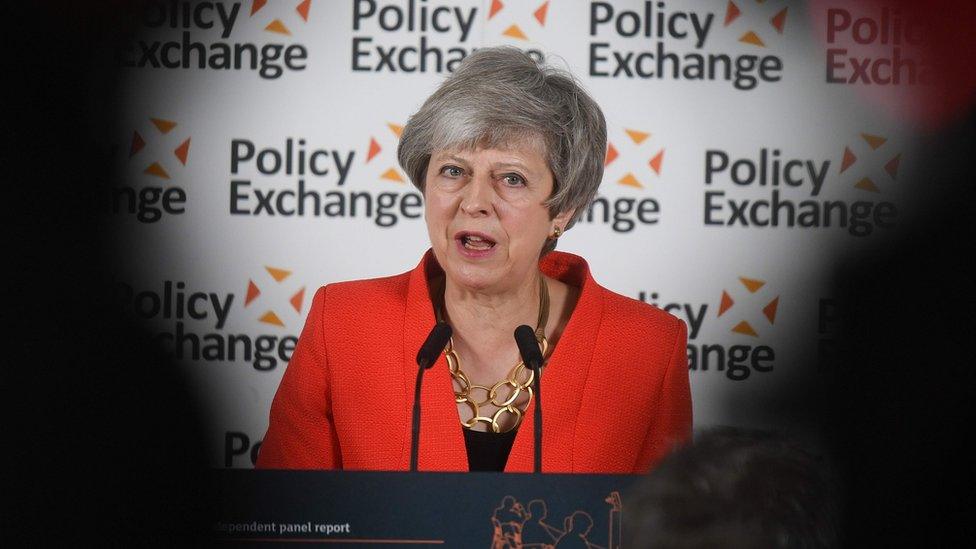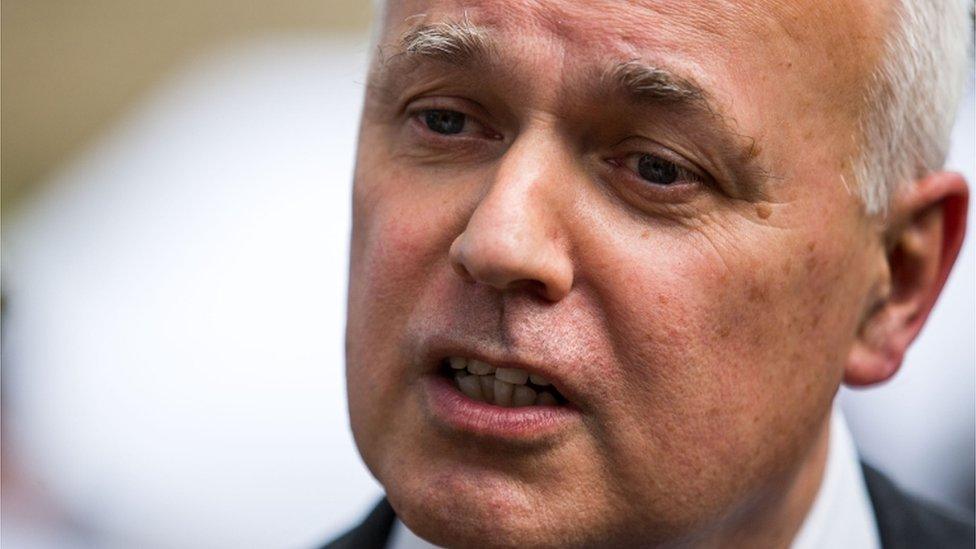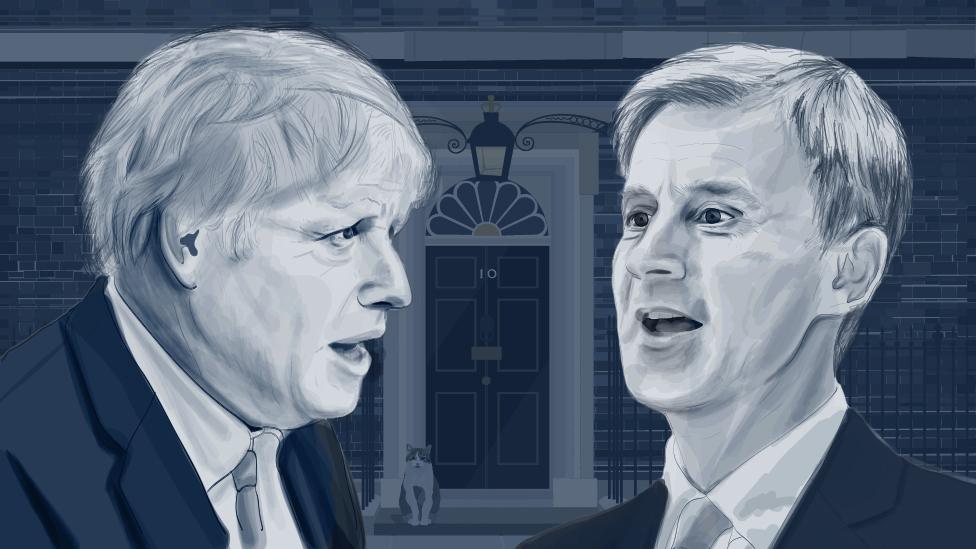May takes on cause dear to her heart
- Published

Theresa May - all but through the exit door at No 10 - has invested what very little political capital she has left on a cause dear to her heart.
It's the cause she promoted the day she became PM, of trying to tilt the odds towards the less well-off and less advantaged where she's able.
Across government, it's argued that student numbers in higher education have risen, including numbers of poorer students.
But it's the psychological burden of debt that Mrs May has been persuaded needs to be addressed, and the real burden of repaying maintenance loans in later life.
In the eyes of many students and their families, Labour's promises to abolish tuition fees may well trump Mrs May's offer. The prospect of paying back fees for years longer might rather take off the gloss.
And the fact is, as the prime minister of course accepts, it'll be up to her successor to decide on this policy.
The tenant of 11 Downing Street looks like changing too - though the Treasury's not convinced these changes can be accomplished without costing a lot more than has been said.
At the Treasury, there's also nervousness at the prospect of a long, long list of potential future prime ministers making all sorts of attractive spending promises as they compete for the keys to No 10.
These policy proposals have now joined that list, and they'll have to take their chances when it comes to the next public spending review.
It may be, though, that Mrs May's very public intervention has raised expectations in a way that makes the changes proposed today that bit more likely to survive and be carried through.
- Published30 May 2019

- Published18 July 2019

